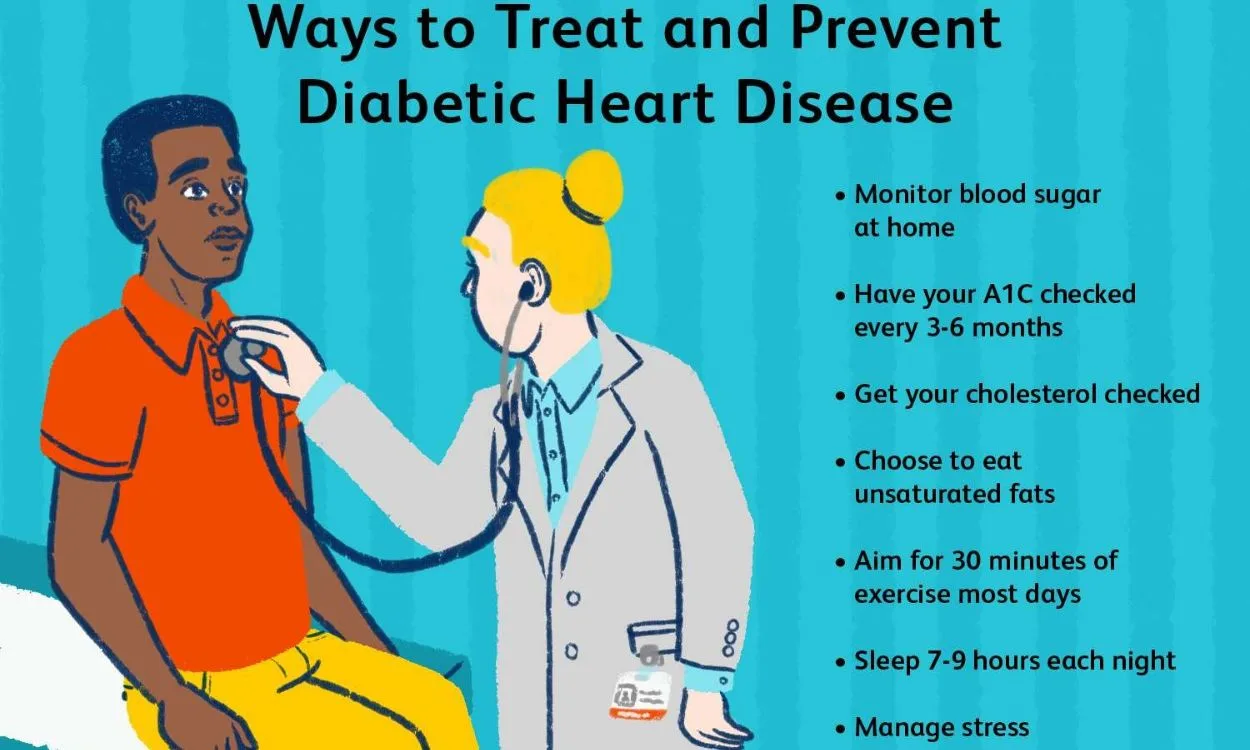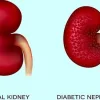How Does Diabetes Affect Heart Health and Cardiovascular Risks?
Diabetes is a chronic condition that affects the way our bodies regulate blood sugar levels. It can have a significant impact on various organ systems, including the heart and cardiovascular system. In this article, we will explore how diabetes affects heart health and increases the risk of cardiovascular diseases.
Diabetes and Heart Health:
- Insulin Resistance: In type 2 diabetes, the most common form of diabetes, the body becomes resistant to the effects of insulin. Insulin is a hormone that helps regulate blood sugar levels. When the body becomes resistant to insulin, it leads to higher levels of sugar in the bloodstream, which can damage blood vessels and increase the risk of heart disease.
- High Blood Pressure: People with diabetes are more likely to develop high blood pressure (hypertension). High blood pressure puts extra strain on the heart and blood vessels, increasing the risk of heart disease, heart attacks, and strokes.
- Abnormal Blood Lipid Levels: Diabetes can disrupt the balance of cholesterol and other lipids in the blood. It often leads to lower levels of “good” cholesterol (HDL) and higher levels of triglycerides, a type of fat. These lipid abnormalities contribute to the formation of plaque in the arteries, narrowing the blood vessels and reducing blood flow to the heart.
- Increased Inflammation: Chronic inflammation is common in people with diabetes. Inflammation plays a significant role in the development of atherosclerosis, a condition characterized by the build-up of plaque in the arteries. Atherosclerosis can lead to heart attacks, strokes, and other cardiovascular complications.
- Damage to Blood Vessels: High blood sugar levels can damage the lining of blood vessels, making them less flexible and more prone to blockages. The narrowing and hardening of blood vessels increase the risk of heart disease and cardiovascular events.
Diabetes and Cardiovascular Risks:
- Increases the Risk of Heart Disease: Diabetes is a major risk factor for heart disease. People with diabetes are two to four times more likely to develop heart disease than those without diabetes. Heart disease includes conditions such as coronary artery disease, heart attacks, and heart failure.
- Raises the Risk of Stroke: Diabetes increases the risk of stroke by up to three times compared to individuals without diabetes. High blood sugar levels and other diabetes-related factors contribute to blood vessel damage, clot formation, and reduced blood flow to the brain, increasing the likelihood of strokes.
- Enhances the Risk of Peripheral Artery Disease: Diabetes can lead to peripheral artery disease, a condition in which the blood vessels supplying the legs and feet narrow and harden. This condition reduces blood flow to the extremities, causing pain, poor wound healing, and an increased risk of infections and amputations.
- Contributes to Heart Failure: Diabetes can weaken the heart muscle and impair its ability to pump blood effectively. Over time, this can lead to heart failure, a condition in which the heart cannot meet the body’s demands for blood and oxygen.
- Worsens Existing Cardiovascular Conditions: If an individual with diabetes already has other cardiovascular conditions, such as high blood pressure, high cholesterol, or atherosclerosis, the presence of diabetes can worsen these conditions and increase the risk of complications.
It is essential for individuals with diabetes to take proactive steps to manage their condition and reduce the risk of heart disease and cardiovascular complications. This includes:
- Maintaining healthy blood sugar levels through diet, exercise, and medication as prescribed.
- Adopting a heart-healthy lifestyle, including a balanced diet low in saturated fats and added sugars, regular exercise, and maintaining a healthy weight.
- Regularly monitoring blood pressure and cholesterol levels and taking appropriate measures to keep them within the target range.
- Quitting smoking, as smoking significantly increases the risk of heart disease and cardiovascular complications.
- Regularly visiting healthcare professionals for comprehensive check-ups and screenings to detect and manage any potential cardiovascular risks.
While managing diabetes and its impact on heart health is crucial, utilizing digital health solutions like the Fitpaa app can provide additional support and guidance. Fitpaa’s personalized fitness plans, nutrition tracking, and expert consultations can help individuals with diabetes achieve their health and fitness goals effectively and reduce the risk of heart disease and cardiovascular complications. Download the Fitpaa app today and take control of your health and wellbeing!









